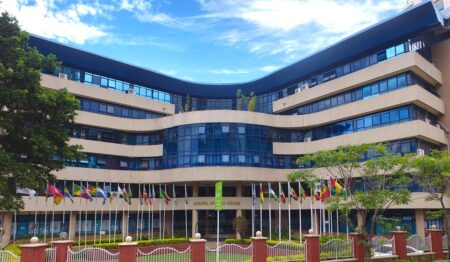This summer has seen a huge amount of interest, and investment, in Africa from private capital outfits.
From fund raising – such as the African Infrastructure Investment Managers (AIIM) reaching final close of its US$320 million African Infrastructure Investment Fund 3 and new funds for Centum, the Nairobi Securities Exchange-listed investors – to acquisitions and disposals, interest has been high across the continent. The Exchange even reported in April that Africa is eying US$1 trillion in private equity deals in the near future.
It also appears that returns are good. East African exits by private equity investors currently stand at 25 per cent, according to a recent I&M Burbidge Capital/EAVCA report, while start-ups in Nigeria have attracted more than US$110.9m of investment in H1 2019. The listing of Jumia, the largest e-commerce operator in Africa which floated on the New York Stock Exchange on a US$1bn ticket earlier this year, was also a strong indicator that returns can be made for African investments on the global stock markets. With the African Continental Free Trade Area (AfCFTA) launching last month, establishing the world’s largest free trade area since the formation of the WTO covering 1.2 billion people with a combined gross domestic product (GDP) of US$2.5 trillion, the future looks bright.
Investors may be carefully looking at snapping up prized assets – and double-digit returns – across the emerging African economies but, as always, there are many hidden caveats.
Risky business
High-risk, high-reward investments are nothing new or novel to private equity investors but the diversity and dichotomy of the African continent adds different investment considerations.
The macro-economic issues are, of course, well documented. African currencies can carry much more risk in terms of fluctuations or devaluation, especially in sectors such as hospitality where earnings are generated in local currency but payment to operators are often required to be in US dollars. On the flipside, many energy assets – notably oil and gas shipments – will be bought in US dollars but may require local operations to be paid in the domestic currency.
Political risk is another aspect of an investment that needs to be reviewed. Is the political climate stable? Is an election due soon, which could result in a change of government with a radically different agenda to drastically change laws or make unilateral changes to existing contracts? There is always the wider political stage, with countries being subject to embargos or tariffs than can have major and instant impact on local businesses. Investors also need to have full and transparent corporate governance and compliance procedures in place because their operations in Africa easily fall within, so could fall foul of, the international scope of the US Foreign Corrupt Practices Act or the UK Bribery Act. Any corruption on the ground, whether directly or indirectly, may result in action before the US or UK courts.
Indeed, weighing up risk and reward is central to all investments but anything from a misstep to events outside an investor’s control could not only dent returns but could result in unwanted – and expensive – cases involving regulators as well as civil or criminal sanctions in foreign courts.
Reducing the risk
Investors need to reduce any potential exposure to such redress. This essentially comes down to a fusion of adequate due diligence, to identify country and sector specific risks, alongside mitigating those risks with suitable commercial and legal structures. For example, while there is a perception that having an investment contract governed by English law, is a panacea to legal issues which may arise from the investment, this may not be of much use where there are practical hurdles in enforcing judgments in the specific African country because it is not party to the New York Convention (e.g. Gambia, Namibia, Sierra Leone, etc.).
Understanding local ownership rules, tax and exchange control approvals are central to identifying the best way to structure the investment. Investors may find that structuring investments through offshore jurisdictions such as the Abu Dhabi Global Market, a free zone governed by English law where disputes can be presided over by judges in England via skype, which has the benefit of double taxation treaties with 13 African countries may present certain benefits as far as tax and dispute resolution considerations are concerned.
Difficulties in exiting investments on the continent due to the illiquidity, high transaction costs associated with African exchanges and limited options (exits via secondary buyout markets and to strategic buyers being the primary exit strategy) are a reality. Alternative investment products such as private credit are gaining momentum as an alternative means for investors to gain exposure to the continent.
The present investment market indicates that things are going well at the moment. Even so, investors need to ensure that if things were to go wrong, their exposure is limited.
Macky O’Sullivan is a Senior Associate for King & Spalding in its Private Funds and Capital Markets practices. Macky has represented and advised clients on a broad range of investment fund, corporate and venture capital matters, including capital raising transactions, seed rounds, venture capital, and corporate venture financings, and the formation of and investment in conventional and Shari’ah-compliant investment funds. He also advises clients on securities laws and the corporate and regulatory aspects of structuring and establishing various fund structures. In addition, Macky regularly advises clients on the establishment of asset management and advisory businesses, as well as the formation of carried interest plans and management arrangements among fund principals.










